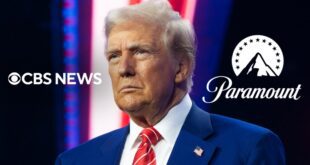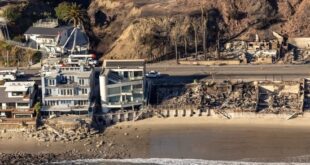The Urgent Challenges Facing the New U.S. President
An editorial in L’Osservatore Romano reflects on the most urgent challenges awaiting the new U.S. president just hours before the inauguration ceremony. For the occupant of the White House, it will be crucial to work on overcoming the polarizations that have marked American political life for years. The “disunited” States of America would indeed pose a grave threat to an already fractured and fragmented world.
The Historical Context
No, history did not “end” with the fall of the Berlin Wall and the dissolution of the Soviet Union. What was once an illusion held by some political scientists and politicians at the end of the last century has proven dramatically wrong.
In fact, as early as the dawn of the 21st century, this became clear with the “unthinkable” event of the terrorist attack on the Twin Towers, which served as a grim awakening for those who imagined an era of global stability marked by liberal economics.
In the more than 30 years since that historic day when the Wall fell—taking with it one of the most oppressive totalitarian systems in history—humanity has experienced an ever-growing number of conflicts that have evolved from local to regional crises, culminating in what Pope Francis has prophetically termed the “Third World War fought piecemeal.” History, therefore, is far from over.
Over this quarter-century, a period the Pope describes as marking a “change of era” more than “an era of change,” the economic, political, and military forces of the world’s great powers have been reshaped.
Today, we live in a multipolar world, making the pursuit of agreements—particularly in times of crisis—more complex and less straightforward. Yet, this is the world we live in, and the principle of realism requires all leaders (especially those with the most power) to recognize that the great challenges of our time demand new paradigms and creativity that reject the mindset of “this is how it’s always been done.”
The Challenges Ahead
It is within this historical context that, on Monday, Donald Trump will be sworn in for the second time to defend the Constitution of the United States and serve the American people.
As has been widely noted, this event has many unprecedented aspects and is met with both hope and concern, as no one overlooks the enduring influence of the United States on international political and economic dynamics, even in a world without a single superpower.
President-elect Trump has repeatedly stated his commitment to ending the war in Ukraine and has pledged that under his presidency, the U.S. will not engage in any new conflicts. It remains to be seen what stance he will take toward international organizations.
Immigration, the environment, and economic development (increasingly driven by technology) are among the key issues on which the 47th occupant of the White House will be closely scrutinized, not only by the American people but also by the international community.
Promoting Unity
Historically, the United States has excelled when it has opened itself to the world (after all, the United Nations is essentially “an American invention”) and, together with its allies, built a system that—with the limitations of any human endeavor—has ensured freedom, economic development, and progress in human rights. This has happened under both Republican and Democratic presidents. An America turned inward would therefore be a “contradiction.”
President Trump is called to work to overcome the divisions and polarizations that have defined American political life for years and that saw in the assault on the Capitol on January 6, 2021 one of the saddest days in national history. This is undoubtedly a difficult task but a necessary one for the new administration. The “disunited” States of America would pose a grave threat to an already fractured and fragmented world.
A Call to Action
Ten years ago, Pope Francis—the first Pope from the Americas—addressed the United States Congress with a speech highlighting the founding values of the American nation. Revisiting this speech could be useful also for President Donald Trump and Vice President J.D. Vance.
That address, widely applauded across party lines at Capitol Hill, identified four great Americans as guiding stars who, even in turbulent times, can help chart the course for those entrusted with political responsibility.
“A nation,” concluded Pope Francis, “can be considered great when it defends liberty as Lincoln did, when it fosters a culture which enables people to ‘dream’ of full rights for all their brothers and sisters, as Martin Luther King sought to do; when it strives for justice and the cause of the oppressed, as Dorothy Day did by her tireless work, the fruit of a faith which becomes dialogue and sows peace in the contemplative style of Thomas Merton.”
These are the values that made America great and that the world still needs today.
 Mind Uncharted Explore. Discover. Learn.
Mind Uncharted Explore. Discover. Learn.


